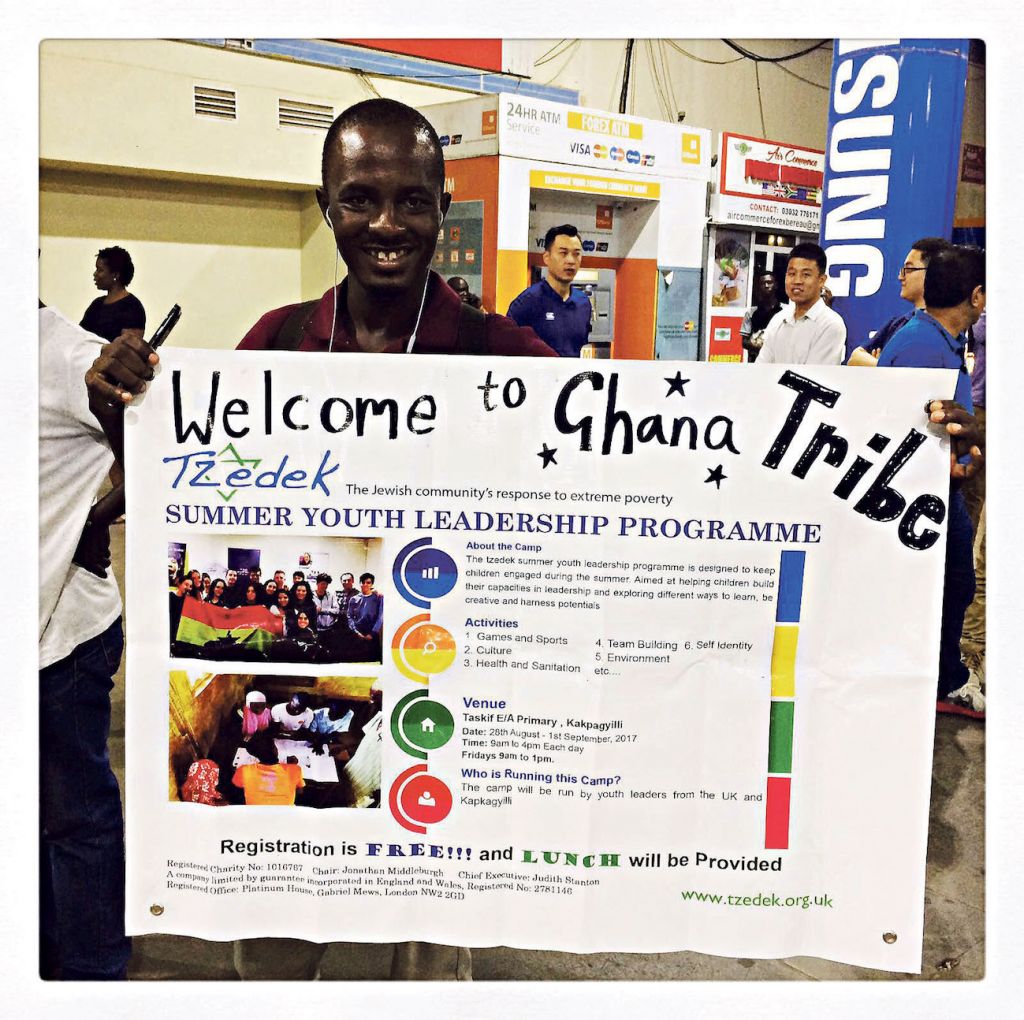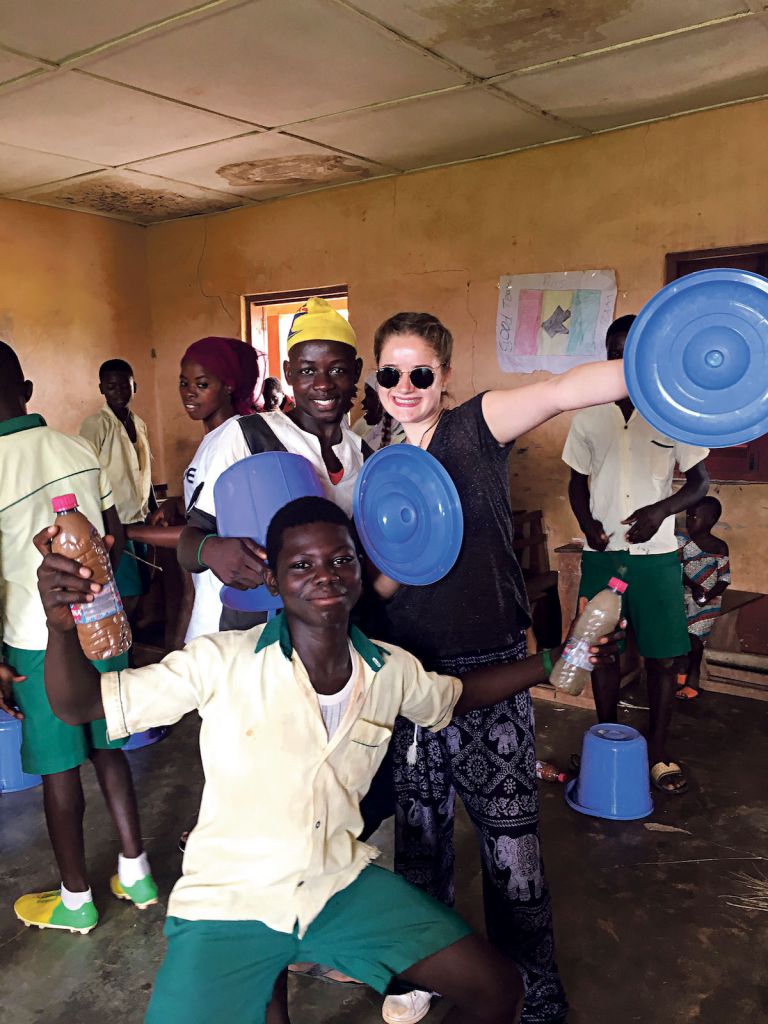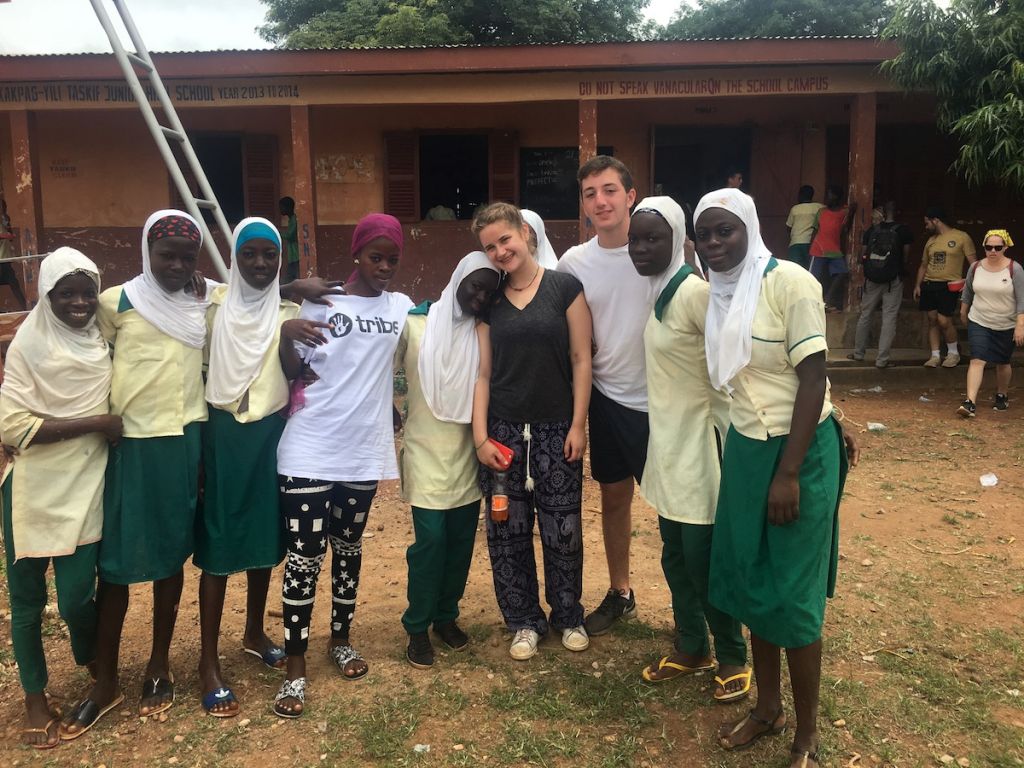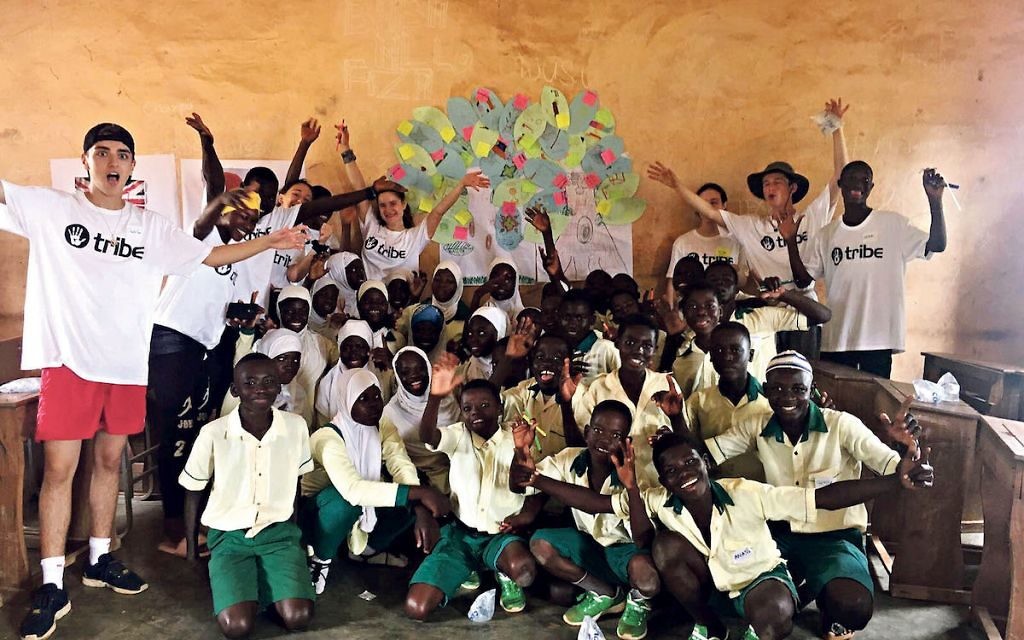Ten days in Ghana that changed the way 20 Jewish students see the world
Tribe Ghana participants spent 10 days helping run a camp in a village near the mostly-Muslim city of Tamale
Alex Kitsburg is a typical 17-year-old. A Jewish student in his final year of A-levels, he has just filled out his university applications. But despite his age, he is a changed person, as he’s also not long back from Africa, where he was one of 20 Tribe Ghana participants. They spent 10 days helping to run a day camp in a village near Tamale, a mostly-Muslim city in the north of the country, and it has changed the way they think.
For the Volunteering and Leadership Experience, run by Tribe, the youth arm of the United Synagogue, in conjunction with anti-poverty charity Tzedek, sixth-formers like Kitsburg dived into a new world, requiring months of training, to prepare them for life in Africa.
Tribe fieldworker Sam Cohen said the trip would help to show them “the importance of contributing to society outside our own communities”, adding that it was “something new, inspiring and life-changing”.
Get The Jewish News Daily Edition by email and never miss our top stories Free Sign Up
Kitsburg agrees. “It was a huge culture shock upon arriving in Ghana,” he says. “Although we were told about the poverty before we went, it’s something you can’t really prepare for. It’s so different from our life in London.”
The group flew into the slightly richer south before heading to Tamale, Ghana’s third-largest city and 70 percent Muslim. The 100 youngsters at the oversubscribed day camp were “curious” about these strange Jewish people who had come to see them from England, he says.

“When we arrived, they were trying to find similarities by comparing and discussing. Religion is a big part of their lives and of our lives, so it came up as a natural topic of conversation. We were the first Jewish people they’d ever met, so they learned things from us.
“For some of the children, we were the first white people they’d ever seen. It was as if we were a spectacle, something novel. Kids would be running alongside the bus to get a look at us.”
Did it all go swimmingly? Not at first. “It was slightly problematic at the beginning,” Kitsburg explains. “The idea was for us to help the Ghanaian youth workers, or madrichim [guides]. Instead, it was as if the white man had turned up with his plans and now he’s going to do it. After a few days, we got that collaboration going. The Ghanaian madrichim started to use our ideas and ran the camp really well.”
Was wealth an issue? “I’m not sure they know the lifestyle we have,” says Kitsburg, adding that most had never left their village. “I think they’d be shocked to see the contrast. We were shocked. It definitely made us appreciate what we have a lot more. You can see a photo or read a statistic but it’s different from seeing it for yourself, seeing some people’s lives compared to what you were moaning about a week before.”
He recalls arriving at the school “There were basic stone buildings with wooden benches as classrooms, one television for the whole school… just nothing there. When you compare that to home, when you see how many kids pack into each of their classrooms, it’s both astounding and upsetting.”
But poverty doesn’t necessarily mean sadness, he explains happily. “We were shocked at just how happy these children were. We weren’t sure whether it was because they didn’t know what they don’t have. Then, on our last day, half the kids burst into tears, trying to stop us leaving. It was then we realised what an impact we’d made on them.

Finally, what does Jewish social responsibility mean to him now? “A lot more after Ghana,” he says. “While I can’t solve poverty in Africa, I realise I’ve a duty to do whatever I can to help.”
He quotes the group’s helping hand, Ilana Epstein, rebbetzin of Cockfosters and North Southgate Synagogue, who says: “One of the lessons we try to instil in the participants is that social responsibility is a core Jewish value.”
Kitsburg agrees. “It’s not about our responsibility when in Ghana, or Africa; it’s about our responsibilities as Jews. It could equally mean volunteering in London. That’s something we’ve all learned. It’s changed the way we think.”

Thank you for helping to make Jewish News the leading source of news and opinion for the UK Jewish community. Today we're asking for your invaluable help to continue putting our community first in everything we do.
For as little as £5 a month you can help sustain the vital work we do in celebrating and standing up for Jewish life in Britain.
Jewish News holds our community together and keeps us connected. Like a synagogue, it’s where people turn to feel part of something bigger. It also proudly shows the rest of Britain the vibrancy and rich culture of modern Jewish life.
You can make a quick and easy one-off or monthly contribution of £5, £10, £20 or any other sum you’re comfortable with.
100% of your donation will help us continue celebrating our community, in all its dynamic diversity...
Engaging
Being a community platform means so much more than producing a newspaper and website. One of our proudest roles is media partnering with our invaluable charities to amplify the outstanding work they do to help us all.
Celebrating
There’s no shortage of oys in the world but Jewish News takes every opportunity to celebrate the joys too, through projects like Night of Heroes, 40 Under 40 and other compelling countdowns that make the community kvell with pride.
Pioneering
In the first collaboration between media outlets from different faiths, Jewish News worked with British Muslim TV and Church Times to produce a list of young activists leading the way on interfaith understanding.
Campaigning
Royal Mail issued a stamp honouring Holocaust hero Sir Nicholas Winton after a Jewish News campaign attracted more than 100,000 backers. Jewish Newsalso produces special editions of the paper highlighting pressing issues including mental health and Holocaust remembrance.
Easy access
In an age when news is readily accessible, Jewish News provides high-quality content free online and offline, removing any financial barriers to connecting people.
Voice of our community to wider society
The Jewish News team regularly appears on TV, radio and on the pages of the national press to comment on stories about the Jewish community. Easy access to the paper on the streets of London also means Jewish News provides an invaluable window into the community for the country at large.
We hope you agree all this is worth preserving.
-
By Laurent Vaughan - Senior Associate (Bishop & Sewell Solicitors)
-
By Laurent Vaughan - Senior Associate (Bishop & Sewell Solicitors)
-
By Laurent Vaughan - Senior Associate (Bishop & Sewell Solicitors)
-
By Laurent Vaughan - Senior Associate (Bishop & Sewell Solicitors)






















